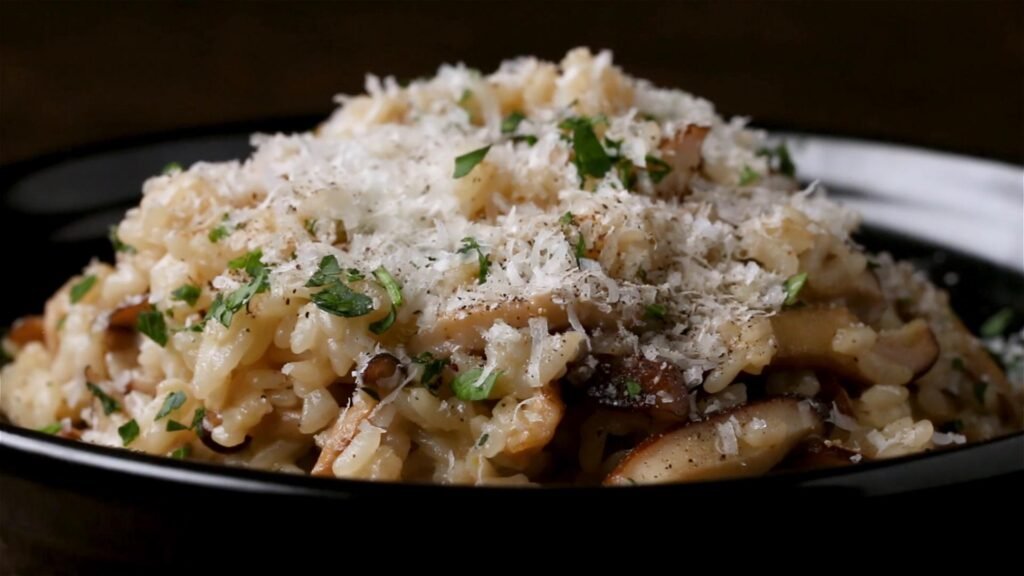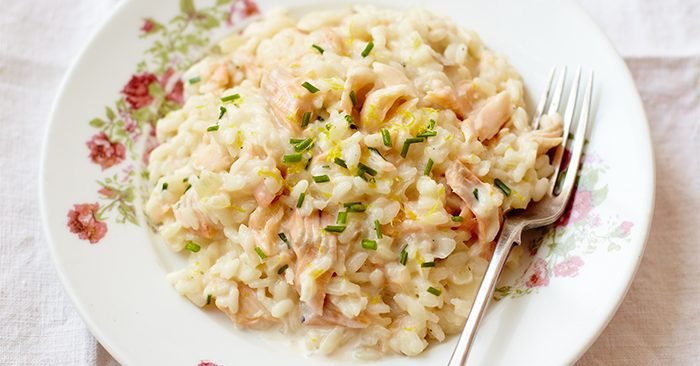Cooking risotto has long been regarded as an art, blending precision with patience. How To Cook Risotto: A Beginner’s Guide provides an extensive methodology for mastering this revered Italian dish. This guide will illuminate every step, from preparing ingredients to achieving the ideal creamy consistency, ensuring that even the most inexperienced cook can replicate a restaurant-quality risotto at home.

Understanding the Fundamentals of Risotto
Before embarking on How To Cook Risotto: A Beginner’s Guide, one must comprehend the essential elements:
- Rice Type: Arborio rice is quintessential, recognized for its high starch content essential for creaminess.
- Stock: A robust, simmering stock (vegetable, chicken, or beef) forms the dish’s flavorful backbone.
- Technique: Slow addition of liquid and constant stirring promotes even cooking and starch release.
Mastering these foundations is imperative for any beginner’s guide to cooking risotto.
Step 1: Ingredient Preparation
As any seasoned chef would confirm, mise en place (everything in its place) is crucial. For this easy risotto recipe, you will require:
- 1 cup Arborio rice
- 1 liter of vegetable or chicken stock
- 1 small onion, finely diced
- 2 cloves of garlic, finely diced
- 2 tablespoons butter
- 1/2 cup dry white wine
- 1/2 cup grated Parmesan cheese
- Salt and pepper to taste
- Extra virgin olive oil for garnish
Preparation begins with dicing the onion and garlic meticulously. Uniformity in chopping ensures even flavor distribution throughout the dish.

Read also – The Ultimate Guide on How to Cook Chicken Drumsticks: A Data-Driven Breakdown
Step 2: Preparing the Stock
Simultaneously, the stock must be brought to a rolling boil and then reduced to a gentle simmer. This keeps the liquid at the optimal temperature, essential for gradual absorption during cooking. Maintaining the stock at this state is pivotal in how to cook risotto: a beginner’s guide.
Step 3: Sautéing Aromatics
Preheat a deep pan over medium heat. Introduce the butter, diced onion, and garlic. Sauté until the onions are caramelized to a golden-brown hue, intensifying their sweetness and setting the flavor base.
Step 4: Toasting the Rice
Introducing the Arborio rice at this juncture is critical. Toasting the rice for approximately one to two minutes coats each grain in fat and enhances the eventual texture. This toasting step is indispensable in every beginner’s guide to cooking risotto.
Step 5: Deglazing with White Wine
Subsequently, the white wine is incorporated. Its acidity balances the richness of the dish. Stir continuously until the wine has evaporated and the rice has absorbed its nuanced flavor.
Step 6: Gradual Stock Incorporation
The hallmark of a perfect risotto lies in adding stock gradually. One ladle at a time must be added, ensuring complete absorption before introducing the next. This meticulous process releases the rice’s starches incrementally, culminating in the signature creamy consistency.
During this phase, patience is not merely a virtue but a necessity in how to cook risotto: a beginner’s guide.

Step 7: Cooking Time and Technique Adjustments
The entire cooking process typically spans 15 to 25 minutes. Monitoring the texture of the rice is crucial:
- It should be al dente—tender yet retaining a slight bite.
- The consistency should be creamy and loose.
If the stock depletes prematurely, adjust by lowering the heat and covering the pan to trap moisture. This is an invaluable tip in any easy risotto recipe.
Step 8: Final Enrichment
Once the rice attains the desired texture:
- Season with salt and pepper.
- Incorporate a final knob of butter and Parmesan cheese for depth and lusciousness.
- Optionally, reserve a small amount of stock to maintain looseness if the Parmesan thickens the dish excessively.
Such finishing touches underscore the sophistication in how to cook risotto: a beginner’s guide.
Step 9: Presentation and Garnishing
Artful presentation elevates the dish:
- Drizzle extra virgin olive oil atop.
- Grate additional Parmesan cheese.
- Sprinkle freshly ground black pepper.
These simple yet elegant garnishes complete this beginner’s guide to cooking risotto.
Advanced Tips for Perfect Risotto
For those seeking excellence beyond the basics:
- Use a heavy-bottomed pan to prevent burning.
- Never rush the process; risotto demands time and attention.
- Experiment with flavors by adding sautéed mushrooms, seafood, or truffle oil.
These enhancements transform a basic risotto into a gourmet experience.
Conclusion
How To Cook Risotto: A Beginner’s Guide is more than a set of instructions—it is a celebration of culinary patience and technique. By understanding each component and respecting the process, even novice cooks can create a dish of unparalleled richness and flavor.

